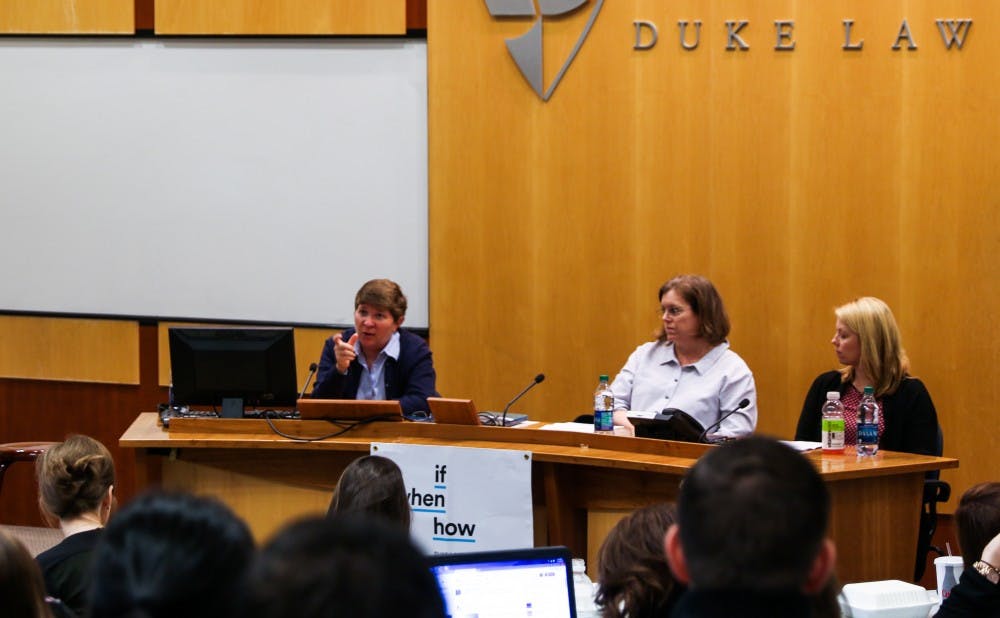Female leaders on campus and in the state joined forces in a panel Wednesday to discuss civic engagement, in light of the recent election cycle.
The panel featured Jane Campbell, a Navy veteran who ran as an independent for North Carolina’s House District 98 in the 2016 election cycle, Ashley Jardina, assistant professor of political science, and Kristin Goss, associate professor in the Sanford School of Public Policy whose research focuses on the role of women in politics. They discussed gender discrimination and political engagement in this year's election in an event titled, "What does the 2016 election mean for women?"
“I’m not going to say that everything is okay,” Campbell said. “I think far too many people have said that, and it is all the more reason that people have to be engaged, and they have to have those difficult conversations.”
Campbell joined the political world after serving in the Navy as one of the first women on a combat ship. After retiring from the military, she ran for the North Carolina House because of her opposition to House Bill 2, a race that she recently lost to incumbent Republican John Bradford, who helped write law.
“I didn’t get into this because I had aspirations for higher political opportunity or anything like that,” Campbell said. “I literally on March 23 of this year looked and realized that my representative, as one year incumbent, was one of the principal authors of House Bill 2 and that he didn’t have an opponent in November’s election.”
Although the panel was slated to discuss the 2016 election cycle’s possible impacts on the future of sexual violence, gender and racial discrimination as well as abortion rights, the speakers talked more about voter-turnout statistics, specifically racial and gender gaps in this year's turnout, as well as political involvement and civic engagement.
Hadrian Luo, a second-year student in the Duke School of Law who attended the panel, noted that there are numerous problems with the political system.
“There are hurdles that are there that prevent people from running for offices effectively or conveniently," Luo said. "You actually have to give up your job to run for office that pays about $30,000 a year, and some lawyers can make way more money than that in their first year. Is it because of the way the system is designed, is it true that only people with really privileged background the only people able to run for offices under the system, and is that really what people want to see?”
Speaking to an audience of largely law students, Campbell, Jardina and Goss encouraged attendees to stay civically engaged and hold their representatives—on the local, state and federal level—accountable for their actions and voting record.
“This country is probably reminiscent of the Vietnam era, maybe worse,” Goss said. “It’s really incumbent on your pragmatic generation to create the set of institutions that will start to work on this ideological, self-sorting that we’re doing that is causing us to literally live in alternate realities.”
The panel was sponsored by Duke's chapter of If/When/How, a national organization of law students, and the Women’s Law Student Association.
Get The Chronicle straight to your inbox
Signup for our weekly newsletter. Cancel at any time.

